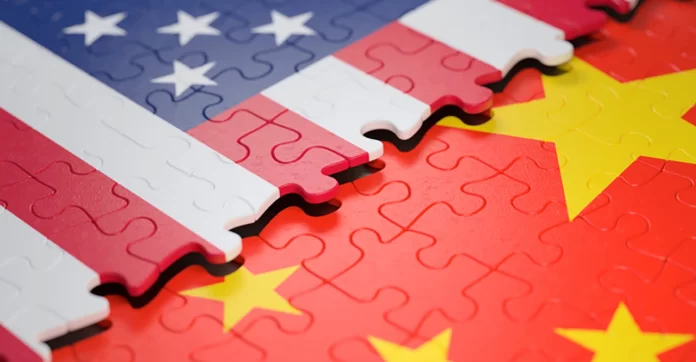China on Thursday took punitive trade measures against dozens of U.S. companies, including Raytheon, Boeing, and Lockheed Martin, amid rising tensions between the two nations.
With President-elect Donald Trump set to take office in a few weeks and promising new tariffs and sanctions on China, Beijing has once again signaled its readiness to retaliate.
China’s Ministry of Commerce added 28 U.S. companies to its export control list, citing the need to “safeguard national security and interests.” It also imposed a ban on the export of dual-use items, which serve both civilian and military purposes, to these companies.
Additionally, 10 companies were placed on an “unreliable entities list” due to their involvement in arms sales to Taiwan, effectively barring them from doing business in China and prohibiting their executives from entering or residing in the country.
The companies named in China’s measures include major American defense manufacturers, such as Raytheon Missile Systems, Boeing Defense, Space and Security, and Lockheed Martin Missiles and Fire Control.
Michael Hart, president of the American Chamber of Commerce in China, noted that Chinese authorities typically avoid taking actions that directly harm the business operations of companies within China’s borders. “Normally the actions China takes do not impact companies who are benefiting China’s economy,” Hart said.
As the U.S. approaches another presidential term with Trump, a vocal critic of China’s economic power, Beijing has adopted a more assertive stance. In recent months, Chinese regulators launched an investigation into American chipmaker Nvidia, banned the export of rare minerals to the U.S., and targeted specific companies to expose their supply chain vulnerabilities.
These measures are part of an escalating economic tit-for-tat that began during Trump’s first term with tariffs and trade restrictions. While Beijing’s responses initially remained symbolic, the Biden administration has since expanded its restrictions on Chinese companies and implemented additional bans on dual-use products, targeting 140 Chinese companies in recent months.




